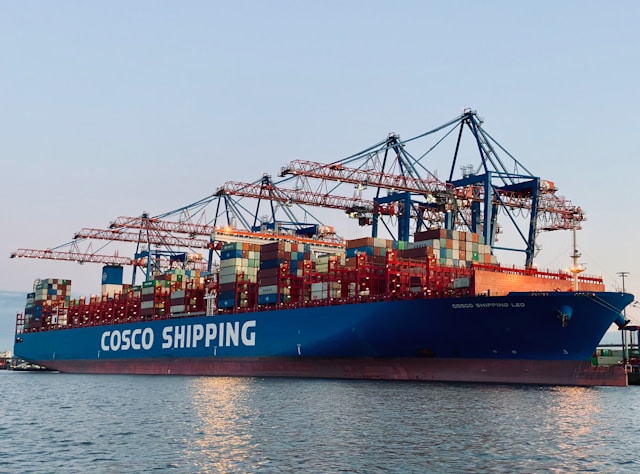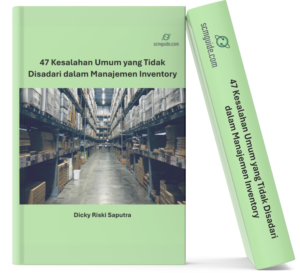In every industry, picking the right material supplier is crucial for project success. Whether it’s construction or manufacturing, the quality, reliability, and affordability of materials are key factors.
But how do you make sure you’re teaming up with the right supplier? Here are 12 important things to think about when choosing a material supplier.
Before we go further into this topic, don’t forget to follow my LinkedIn account. You’ll get more helpful insights on supply chain management there.
Table of Contents
Quality Assurance
In any industry, the quality of materials is crucial for project success. Top-notch materials are essential for ensuring durability, reliability, and performance. When choosing suppliers, prioritize those known for consistently delivering high-quality materials.
These suppliers maintain strict quality control measures, meeting or exceeding industry standards. Partnering with such suppliers minimizes the risk of subpar materials, protecting your reputation and satisfying customers.
Quality materials offer more than just immediate project requirements. They inspire confidence in longevity and reliability. Whether it’s construction materials or manufacturing components, knowing they meet strict standards ensures performance and durability.
High-quality materials often result in lower maintenance costs and fewer disruptions, saving time and money throughout the project or product lifespan.
Building relationships with reputable suppliers of top-notch materials is vital. They prioritize exceeding customer expectations and consistently delivering on promises.
By valuing quality over short-term savings, businesses foster partnerships that lead to collaboration, innovation, and improvement. Investing in excellent materials from trusted suppliers sets a strong foundation for success and competitiveness in today’s competitive market.
Reliability
Timely delivery of materials is crucial for project management in many industries. Delays can disrupt schedules and lead to costly setbacks. Reliable suppliers prioritize punctuality, ensuring materials arrive when promised. Maintaining a track record of on-time deliveries keeps projects on schedule and within budget.
On-time delivery not only prevents delays but also optimizes workflow efficiency. It allows seamless coordination of tasks and resources, maximizing productivity.

Construction crews can work without interruptions, boosting utilization. Moreover, punctual delivery fosters trust and collaboration between suppliers and project teams, promoting smoother execution.
Consistently meeting delivery deadlines enhances a company’s reputation and competitiveness. Clients prefer suppliers known for their reliability. By prioritizing timely delivery, suppliers not only meet project needs but also contribute to long-term growth and success.
Cost-Effectiveness
While quality is crucial, competitive pricing is also important when sourcing materials. Businesses need to balance quality with cost-effectiveness to stay profitable.
Seeking suppliers who offer fair prices without compromising quality ensures value for customers while maximizing profits.
Choosing suppliers with competitive pricing requires careful research and evaluation. Businesses should assess pricing transparency, cost structures, and added services.
By leveraging this information, they can negotiate favorable terms and reduce costs without sacrificing quality. This approach enhances competitiveness in the market.
Prioritizing competitive pricing promotes sustainability and growth. By controlling procurement costs, businesses improve profit margins and can invest in innovation and expansion.
Competitive pricing also enhances customer satisfaction and loyalty, driving repeat business and positive referrals. Striking the right balance between quality and pricing sets businesses up for success in today’s competitive environment.
You might also like:
- The Contradiction in Supply Chain Experience: Revealing Both Success and Failure
- Unveiling the Hidden Costs: The Impact of Meaningless Actions on Waste in Supply Chain Management
Variety and Range
Projects require a variety of materials, each suited to specific needs. Choosing suppliers with a wide range of offerings is crucial for project success.
These suppliers provide flexibility and customization options, ensuring access to all necessary materials. This streamlines procurement and minimizes logistical complexities for project managers.
Diverse inventory reduces the risk of material shortages or compatibility issues during projects.
Whether it’s construction or manufacturing, having multiple options enables teams to adapt to changing requirements. Suppliers with a broad inventory offer valuable expertise and insights, optimizing material selection for efficiency and performance.

Suppliers with diverse inventories show commitment to meeting customer needs and industry trends. By continuously expanding offerings, they provide innovative solutions and stay competitive.
This dedication fosters long-term partnerships based on trust and reliability, ensuring projects have access to the right materials when needed.
Consistency
Consistency is key in partnerships between businesses and suppliers. It ensures stability and reliability across product quality, pricing, and service.
Klik dan dapatkan ebook dari scmguide.com ini!
"47 Kesalahan Umum yang Tidak Disadari dalam Manajemen Inventory"
Manfaat yang Anda Peroleh:
🔍 Insight tentang kesalahan yang sering terabaikan
🔧 Tips dan trik praktis untuk perbaikan
📚 Bahasa sederhana yang mudah dipahami
Prioritizing consistency minimizes risks and uncertainties in the supply chain, building trust and reliability over time.
In terms of product quality, consistency is essential for meeting expectations with every delivery. Suppliers maintaining high standards instill confidence in reliability and performance.
This reliability is crucial for safety, durability, and customer satisfaction, protecting the reputation and integrity of businesses.
Consistency in pricing is vital for transparent and mutually beneficial relationships. Stable pricing enables effective budgeting and planning, reducing disruptions and maintaining profit margins.
Fair pricing practices demonstrate integrity and foster trust between businesses and suppliers, ensuring a sustainable partnership dynamic.
Communication and Responsiveness
Effective communication is vital for successful relationships between businesses and suppliers. It involves clear and timely exchanges of information about orders, inquiries, and potential issues.
Prioritizing suppliers who are responsive and attentive to communication signals commitment to customer satisfaction and collaboration, laying the groundwork for productive partnerships.
Responsive suppliers offer benefits such as prompt assistance and a positive customer experience. They empower businesses to make informed decisions by clarifying specifications and providing updates on order status.
Effective communication streamlines the procurement process, reducing lead times and minimizing misunderstandings.
Moreover, communication promotes transparency, accountability, and problem-solving. Open lines of communication enable businesses to voice concerns and collaborate with suppliers to find solutions.
Transparent communication allows for proactive problem-solving, minimizing disruptions to project timelines. Cultivating strong, trust-based relationships with suppliers drives efficiency and innovation in supply chain management.
Technical Support
Access to technical expertise is crucial when dealing with complex materials.
Suppliers offering comprehensive support in material selection, application guidance, and troubleshooting enhance project success. Businesses benefit from tailored insights and recommendations from knowledgeable experts.

Suppliers assist in material selection by recommending options that meet project specifications and budget constraints.
Their expertise ensures informed decisions that optimize performance and cost-effectiveness. This approach minimizes the risk of selecting unsuitable materials, streamlining procurement.
Moreover, suppliers provide application guidance and troubleshooting support, contributing to project efficiency. Their technical expertise helps mitigate risks, reduce downtime, and ensure optimal material performance.
This collaborative problem-solving fosters stronger partnerships between businesses and suppliers, built on trust and shared success.
You might also like:
- Mastering Success: How Delegating Powers Up Your Supply Chain Strategy
- Winning in Supply Chain: Competence and Attitude Matter Most
Inventory Management
Efficient inventory management is vital for ensuring businesses have materials when needed.
Choosing suppliers with streamlined processes minimizes lead times and prevents stockouts that disrupt operations. These suppliers accurately forecast demand, maintain optimal stock levels, and replenish inventory promptly, ensuring a seamless supply chain.
Streamlined processes improve inventory visibility and control, enabling informed decision-making. Real-time tracking and monitoring help anticipate demand fluctuations and identify supply chain bottlenecks.
By partnering with efficient suppliers, businesses optimize inventory turnover and reduce carrying costs, enhancing agility and competitiveness.
Furthermore, suppliers leverage technology and automation to enhance efficiency and accuracy. Automated systems optimize inventory replenishment and minimize errors, improving service reliability.
By harnessing technology, suppliers strengthen partnerships with clients, based on trust and mutual success.
Compliance and Certification
Ensuring suppliers follow industry standards and regulations is vital for material safety and reliability.
Compliance demonstrates a commitment to quality and safety, reducing risks associated with subpar materials. Partnering with compliant suppliers safeguards product integrity and business operations.
Industry standards set benchmarks for quality and safety. Suppliers adhering to these standards ensure materials meet rigorous requirements.
Certifications like ISO 9001 and ISO 14001 validate commitment to excellence and sustainability. Choosing certified suppliers aligns with corporate objectives and reduces supply chain risks.
Certified suppliers implement robust management systems for quality and environmental responsibility.
Partnering with them enhances reputation and contributes to sustainability. Prioritizing compliant suppliers ensures material safety, customer satisfaction, and a sustainable future.
Track Record and Reputation
A supplier’s reputation reflects their reliability, performance, and dedication to customer satisfaction. It’s crucial for businesses to gather feedback from other customers and review references before engaging with a supplier.
This helps assess the supplier’s reliability, responsiveness, and overall performance, reducing risks.

Customer feedback and references offer firsthand accounts of a supplier’s strengths and weaknesses.
Positive testimonials validate their ability to meet expectations, while negative feedback warns of potential issues. Evaluating this feedback helps businesses identify reliable suppliers that align with their needs and standards.
Reviewing references allows businesses to assess the supplier’s performance in specific areas such as timely delivery and product quality. This information informs decision-making and builds confidence in selecting suppliers.
By leveraging customer experiences, businesses establish partnerships based on trust and mutual success.
Sustainability Practices
In today’s world, sustainability is a top priority in business. Partnering with suppliers who prioritize sustainability is not just a moral choice but also a smart one.
By working with suppliers committed to eco-friendly materials, ethical sourcing, and waste reduction, businesses show their commitment to the environment and social responsibility.
Suppliers focusing on eco-friendly materials minimize environmental impact by using renewable resources and reducing energy consumption.
Choosing sustainable suppliers helps businesses reduce their carbon footprint and promote recyclability. Eco-friendly materials often offer better performance, such as durability, adding value to products.
Ethical sourcing ensures materials are obtained responsibly, respecting workers’ rights and environmental well-being.
Working with such suppliers reduces the risk of supporting exploitative practices. Ethical sourcing promotes transparency and trust throughout the supply chain, contributing to a fairer global marketplace.
Location and Logistics
When choosing suppliers, consider their proximity and logistics to optimize efficiency and cut costs. Suppliers nearby often offer shorter lead times and lower shipping costs.
Local suppliers understand regional regulations and market dynamics, tailoring services to your needs. Choosing close and well-equipped suppliers streamlines supply chain operations, boosting efficiency.
Strong logistical capabilities ensure reliable and timely material delivery, reducing disruptions. Supplier efficiency depends on factors like transportation networks and inventory management.

Investing in robust logistics infrastructure minimizes delays and stockouts, enhancing project timelines and profitability. Effective logistics not only improves reliability but also enhances customer satisfaction by ensuring on-time delivery.
Efficient transportation and delivery processes save costs and give a competitive edge. Cutting shipping costs and lead times reduces overhead expenses and improves cash flow. Quick delivery times help businesses respond faster to customer demands, gaining an advantage in the market.
Prioritizing suppliers with strong logistics boosts cost efficiency, operational agility, and customer satisfaction, driving business success.
Conclusion
Choosing the right material supplier is crucial for project success.
Evaluating potential suppliers based on these 12 criteria helps make informed decisions and build productive partnerships that propel your business forward.
I hope you find it helpful!
Please share this article with your colleagues so they can also benefit. For more insights on supply chain management, follow my LinkedIn account. You’re free to use all articles on this blog for any purpose, even for commercial use, without needing to give credit.

 by
by 


